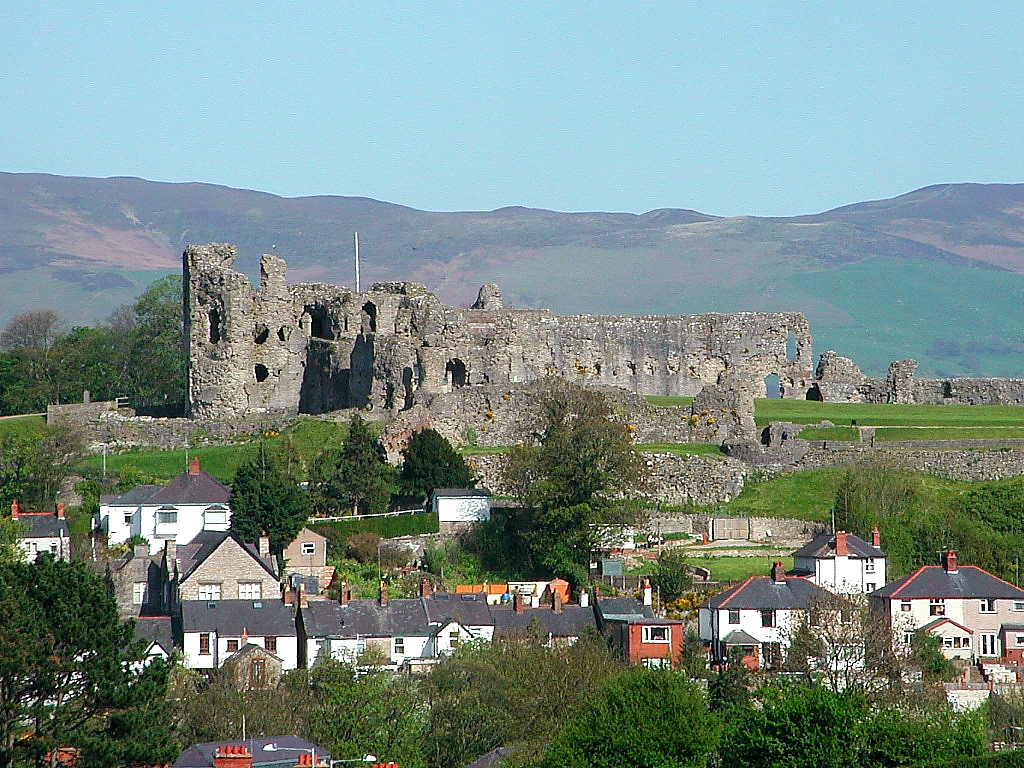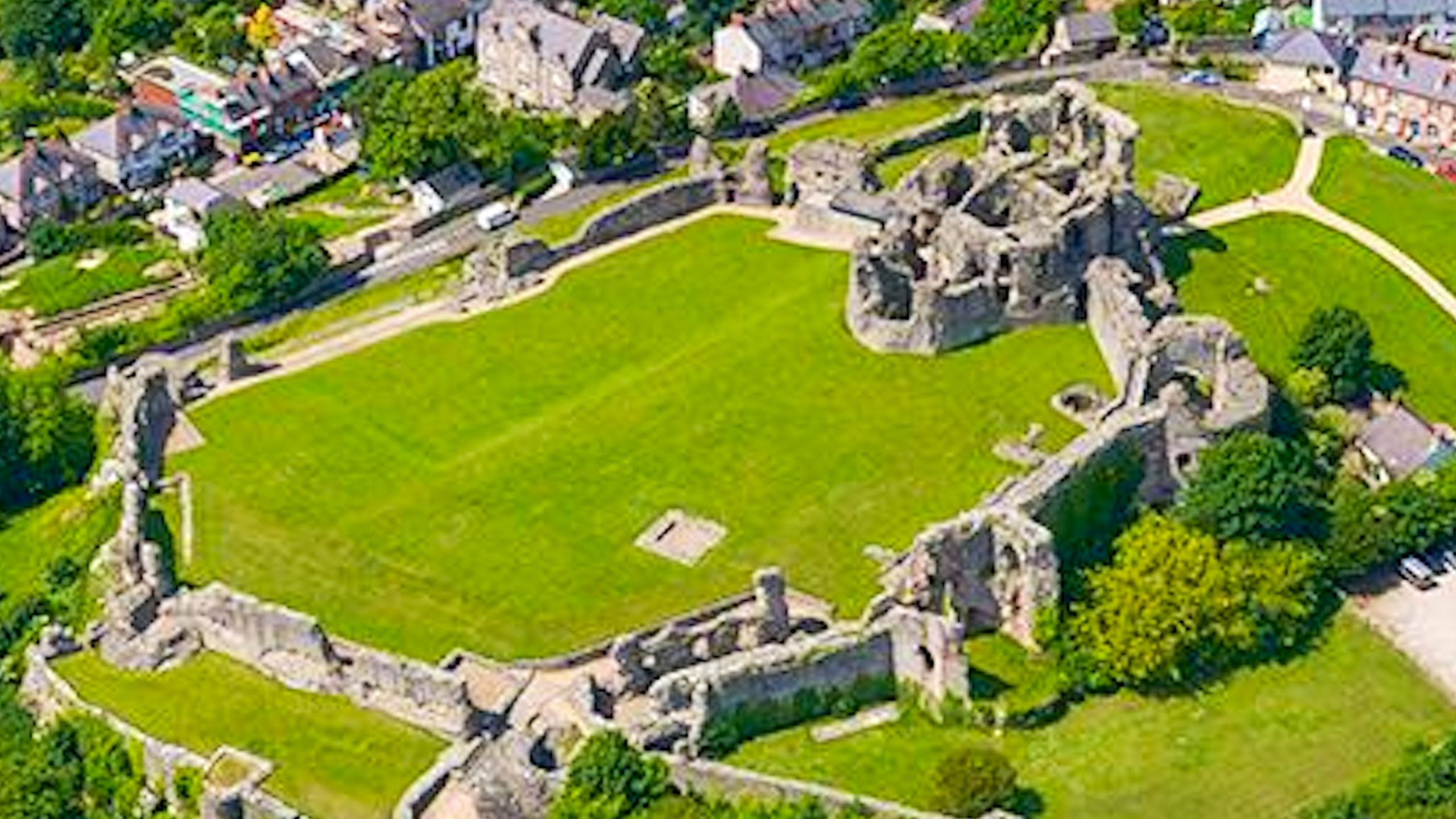Denbigh Castle
The town of Denbigh is in a hilly setting, deep in the countryside of north Wales. It is about 30 miles west of Chester and 10 miles south of the coastal resort of Rhyl.
Its name means ‘little fortress’ and the Welsh probably had a castle here for hundreds of years. No sign of that castle remains however, the present extensive ruins dating from the period following the subjection of the Welsh by Edward I in 1282. The king was keen to create a ring of further castles to complement his four key coastal fortresses at Conwy, Beaumaris, Caernarfon and Harlech. He granted Denbigh to Henry de Lacy (d1311) 5th earl of Lincoln, and his famous architect, Master James of St George, was tasked with designing a new and formidable castle for the site. A feature of his design was a massive and unusual gatehouse with three interconnecting octagonal towers forming a triangle. As well as starting work on the castle, Henry de Lacy established a new walled town and encouraged English families to settle there. By 1285 he was ready to issue a borough charter. In 1294 the castle was briefly captured by the Welsh, but it withstood all subsequent attacks, including that of Owain Glyn Dwr in 1400.

The remains of the massive gatehouse can be seen on the left

This view shows the extensive layout with the gatehouse at the top right
After Henry de Lacy’s death in 1311, the lordship passed to his son-in-law Thomas of Lancaster, son of Edmund Crouchback, the younger brother of king Edward I. Thomas’s implacable opposition to his cousin, Edward II, led to his execution in 1322 at Pontefract, following the battle of Boroughbridge. His widow, Alice de Lacy, was imprisoned at York but retained the lordship of Denbigh. The rapacious Despensers, favourites of Edward II, threatened her and she eventually gave up the lordship to Hugh Despenser the Elder. Following the ‘invasion’ by Roger Mortimer (d1330) and Queen Isabella in 1326, both Despensers were executed and Denbigh was granted to Mortimer. After his fall in 1330 the castle became the property of a close friend of Edward III, William Montagu. The Montagus retained the lordship until 1354 when the king revoked his original sentence on Roger Mortimer, and Denbigh was granted to Mortimer’s grandson, another Roger Mortimer (d1360) 2nd earl of March. When the Mortimer line came to an end in 1425, the lordship was inherited by Richard, 3rd Duke of York (d1460) and then passed to the Crown.